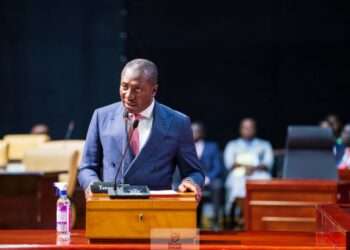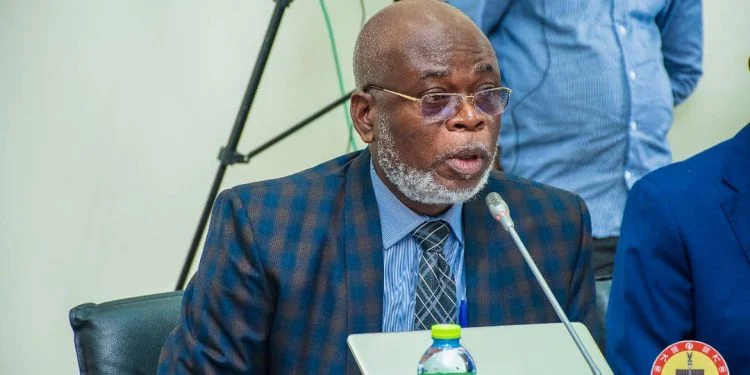The Finance Minister, Ken Ofori-Atta, has said that the government is engaging Telecommunications network to reduce the cost of data as part of fiscal measures to curtail the impact of the coronavirus.
Following the outbreak of the virus, the government directed the shutdown of all schools until further notice and banned public gatherings including religious activities.
This in addition with the partial lockdown has compelled myriad of companies to ask their staff to work from home to observe social distancing practice. Also, several schools have moved online to engage in e-learning due to the shutdown of schools to prevent the spread of the virus.
Undoubtedly, this has generally increased the usage of data as people would now have to work from their homes whiles students have their e-learning.
Addressing the members of parliament, the Finance Minister said “Government is engaging the Telcos to reduce the cost of data and telecommunication services to households and small businesses”.
Meanwhile, the Chief Executive Officer of MTN Ghana, Selorm Adadevor had earlier suggested that the reduction in cost of data to boost communication amidst the coronavirus pandemic would lead to traffic and possibly slow productivity.
“Once you lower prices, invariably the 150 percent growth in capacity will become 300 percent growth in capacity. If we can’t even accommodate a 150 percent increase in traffic; then creating a situation where we have to accommodate a 300 percent increase in traffic will be a challenge,” he said.
What other fiscal measures have Gov’t taken to lessen the impact of the pandemic
The government has put in place the following fiscal measures to ensure the limitation of the impact caused by the pandemic.
The preparation and implementation of a Coronavirus Alleviation Programme (CAP) to be funded with an initial amount of GHȼ1 billion as directed by the President.
The President has also established a COVID-19 Fund, to be managed by an independent board of trustees, chaired by former Chief Justice, Sophia Akuffo, to receive contributions and donations from the public to support the CAP and to assist in the welfare of the needy and the vulnerable.
Government is also ensuring a realignment of Statutory Funds towards expenditures that tend to mitigate the impact of the coronavirus pandemic (sanitation and health related expenditures), and limiting the award of new contracts; whiles focusing on the payment of arrears.
There’s also a plan to amend the Bank of Ghana Act to allow for government borrowing from BOG up to 10% of previous year’s tax revenue in the event of tight domestic financing market conditions.
The Bank of Ghana and the Ministry of Finance have also engaged commercial banks to discuss their support to the private sector to mitigate the impact of the Coronavirus pandemic. The support includes a syndication facility of GHȼ3 billion to support industry especially in the pharmaceutical, hospitality, service and manufacturing sectors, as mentioned by the President; granting of six-month moratorium of principal repayments for selected businesses; and reduction of interest rates priced-off the Ghana Reference Rate (GRR) by 200 basis points (2% per annum.
According to government, the Ghana Revenue Authority will also provide some reliefs to businesses and households including extension of due dates for filling of taxes from 4 months to 6 months after the end of the basis year; tax payers are encouraged to pay their taxes by bank transfers; grant a remission of penalties on principal debts to Tax payers who redeem, their outstanding debts due GRA up to 30th June 2020; and wave VAT on donations of stock of equipment and goods for fighting the Covid-19 Pandemic.
The GRA will also grant tax waivers on selected Third-Tier Pension withdrawals and permit the deduction of contributions and donations towards COVID-19 as allowable expense for tax purposes.





















